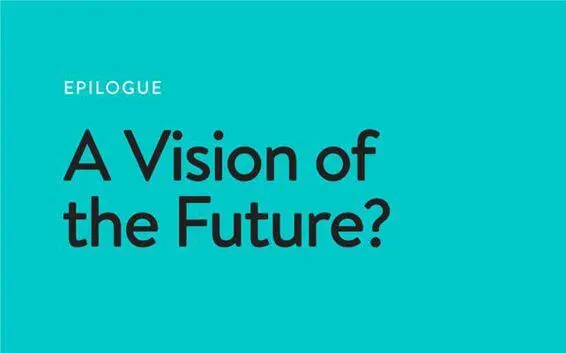Bruce Hood - The Domesticated Brain - A Pelican Introduction (Pelican Books)
Здесь есть возможность читать онлайн «Bruce Hood - The Domesticated Brain - A Pelican Introduction (Pelican Books)» весь текст электронной книги совершенно бесплатно (целиком полную версию без сокращений). В некоторых случаях можно слушать аудио, скачать через торрент в формате fb2 и присутствует краткое содержание. Год выпуска: 2014, ISBN: 2014, Издательство: Penguin Books Ltd, Жанр: Старинная литература, на английском языке. Описание произведения, (предисловие) а так же отзывы посетителей доступны на портале библиотеки ЛибКат.
- Название:The Domesticated Brain: A Pelican Introduction (Pelican Books)
- Автор:
- Издательство:Penguin Books Ltd
- Жанр:
- Год:2014
- ISBN:9780141974873
- Рейтинг книги:4 / 5. Голосов: 1
-
Избранное:Добавить в избранное
- Отзывы:
-
Ваша оценка:
- 80
- 1
- 2
- 3
- 4
- 5
The Domesticated Brain: A Pelican Introduction (Pelican Books): краткое содержание, описание и аннотация
Предлагаем к чтению аннотацию, описание, краткое содержание или предисловие (зависит от того, что написал сам автор книги «The Domesticated Brain: A Pelican Introduction (Pelican Books)»). Если вы не нашли необходимую информацию о книге — напишите в комментариях, мы постараемся отыскать её.
The Domesticated Brain: A Pelican Introduction (Pelican Books) — читать онлайн бесплатно полную книгу (весь текст) целиком
Ниже представлен текст книги, разбитый по страницам. Система сохранения места последней прочитанной страницы, позволяет с удобством читать онлайн бесплатно книгу «The Domesticated Brain: A Pelican Introduction (Pelican Books)», без необходимости каждый раз заново искать на чём Вы остановились. Поставьте закладку, и сможете в любой момент перейти на страницу, на которой закончили чтение.
Интервал:
Закладка:
One could argue that it is not that these murderers did not care about others, but rather they cared too much. They cared more about what other people thought about them than they did for the lives of their victims, their families and ultimately themselves. These atrocities were deliberate sabotage in order to be noticed. In their disturbed minds, these murderers thought they were getting even with an unjust world.
Most of us lead relatively normal lives without the extremes of ostracism and violence, but we all know what it feels like to be excluded. Even in the absence of extreme exclusion, we still lead our lives seeking the approval of others and, in doing so, maybe we all care just a little too much. Almost everything that we do is motivated by what others think, and how we are being judged.
If you ask most people about ambitions and goals, they will talk about success – something that many want but few can attain. Success is defined by what other people think. Even success in terms of material wealth and possessions has this curious aspect. We want more money to buy more of the trappings of success so that we can have status within the group. Non-material success, such as fame or infamy, is again defined by what others think. Every author writes in the hope that he or she will be read by many. Every painter wants his or her work to be appreciated. Every singer or actor wants an audience. Every politician needs support. Even the solitary rampaging gunman is motivated by what others think.
We have reached a point in our civilization where many want to be famous for the sake of just being famous, irrespective of how they go about it. There is some deep compulsion in most of us to be noticed by the group. When a small child is crying out to his parents, ‘Look at me, Look at me!’, they are declaring one of the fundamental needs when it comes to being human – the need for attention. That childhood urge never really goes away as we grow up into adults seeking the attention of others because they validate our existence.
The need for attention is the bittersweet twist to domestic life. Most children are raised in a nurturing environment that breeds dependency on others. Initially that dependency addresses all the physical and emotional needs that our long childhoods engender. It is a time when we learn how to become members of the groups that surround us, but when we eventually grow up to attain a level of independence, acceptance and inclusion as adults, most of us remain bound in a continual cycle of seeking approval from others. Almost everything we do is done with a view to how others will perceive us. That quest provides both the joys and the miseries of being a social animal.

People spend time together for a number of reasons. We may have family commitments and most of us work alongside colleagues. There are also few places on this planet where one can escape the presence of others entirely. But whether we have no choice or we actively seek out the company of others, we always prefer to be liked by the groups that we join.
Likeability depends very much on what qualities the group decides are admirable. The psychologist Richard Nisbett has argued that different cultures value different ways of behaving in groups and indeed perceive the social world differently in terms of the relatedness of individuals and groups. 1In Eastern traditions, members of a group are interdependent and see themselves not so much as individuals but as a collective team working for the common good. This interdependence stems all the way from the family to the workplace to the whole of society. In contrast, Westerners are much more likely to consider themselves as individuals and value those who achieve success even when that comes at a cost of trampling on others on the way up to the top. Asians take great pleasure from participating in and succeeding as a group, whereas Westerners tend to take greater pride in individual achievements. Such an individualistic approach would be considerable extremely rude by most traditionalists from the East. As Nisbett points out, in Chinese there is no word for ‘individualism’, with the word that comes closest being one that corresponds to ‘selfishness’.
Ultimately, whether collective or individualistic, validation in any culture only really exists in the minds of others. It is not enough that I believe my achievements to be a success, but rather they have to be recognized as successful by the group. This deep-seated need to be valued by the group arises because of our domesticated brains. Our success depends on acceptance from the people who inhabit our social landscape, the one that is shaped during our development. However, that landscape is now destined to change in ways that could never have been predicted.
Throughout this book, we have considered the nature of human development, both within the individual and across the evolution of our species, as a progression towards greater domestication. This I define as the related skills of coordination, cooperation and cohabitation with others, based on what is considered acceptable behaviour. Other animals have some of these attributes of coexistence as well, but no other animal has taken domestication to the extent that we have. Rudiments of coordination, cooperation and cohabitation must have existed in our species from the very beginning, when hominids became socially dependent on one another hundreds of thousands of years ago. Each of these social skills required a brain capable of perceiving others in terms of who they are, what they want, what they are thinking and, in particular, what are they thinking about me? Coordination enabled many to work together for more than could be achieved by the individual working alone. Cooperation was a spur to help each other on the understanding that there would be reciprocal benefits down the road. Cohabitation provided safety and security in numbers as well as the change in our species from a nomadic to a sedentary domesticated life.
So what does the future hold for this domesticated life? We are currently living through one of the most transformative periods in human history. Every so often a new technology comes along that changes the way we behave. The raft was a significant invention as it enabled groups of early humans to migrate across oceans to new territories. The plough played a critical role in the birth of agriculture that spurred the transition from a nomadic lifestyle to a sedentary existence that is the basis for modern domestic living. Gunpowder and steel changed the way certain groups conquered and subjugated other peoples. 2Printing enabled humans to spread knowledge and create our education systems.
The invention of the Internet will go down as another significant milestone in the evolution of human civilization. It is an unprecedented system for exchanging information and conducting business, but it is the social revolution the Internet has created that is probably the most unforeseen consequence of this technology. Not so long ago, we may have spent most of our time actually in the presence of others, but that was before the Internet infiltrated almost every household in the West. With around 1.73 billion subscribers, nearly one in four people on the planet currently uses social networking sites (SNS), with a forecast of 2.55 billion users by 2017. 3It seems inevitable that eventually the majority of the human race will be online, engaging in social exchanges. For the first time in the history of our species, each one of us has the potential capability to interact with anyone else on the planet in real time but within a virtual environment. We have come a long way from the small band of early hominids living in small numbers on the African savannah, exchanging gossip within our group. The social skills that we evolved for interacting with each other are now brought to bear in situations where we communicate with not just a handful but hundreds and sometimes thousands of others over vast distances in any time zone from the comfort of our homes.
Читать дальшеИнтервал:
Закладка:
Похожие книги на «The Domesticated Brain: A Pelican Introduction (Pelican Books)»
Представляем Вашему вниманию похожие книги на «The Domesticated Brain: A Pelican Introduction (Pelican Books)» списком для выбора. Мы отобрали схожую по названию и смыслу литературу в надежде предоставить читателям больше вариантов отыскать новые, интересные, ещё непрочитанные произведения.
Обсуждение, отзывы о книге «The Domesticated Brain: A Pelican Introduction (Pelican Books)» и просто собственные мнения читателей. Оставьте ваши комментарии, напишите, что Вы думаете о произведении, его смысле или главных героях. Укажите что конкретно понравилось, а что нет, и почему Вы так считаете.











